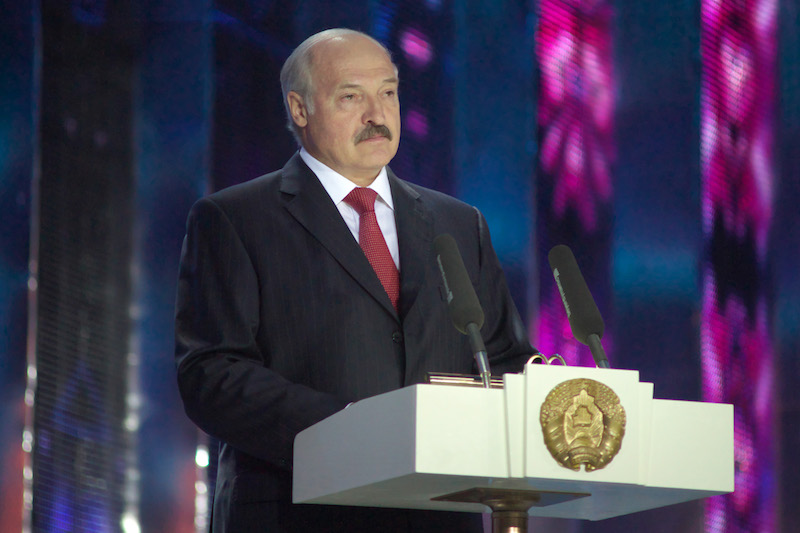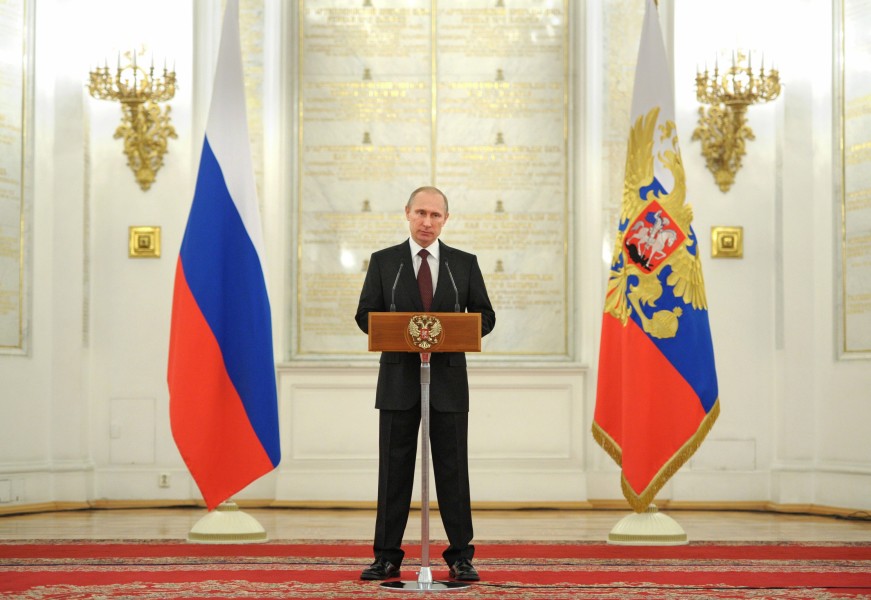Belarus is an example of a state developing its geopolitical distinctiveness into a position as an important regional contributor. It occupies a discernible midpoint between ongoing fears of Russian aggression and NATO’s expanded involvement in Eastern Europe. Though small and relatively underdeveloped, Belarus’ unique history, strategic location and political leanings make it an indispensable component in the European security framework. Greater attention should be devoted to messages emerging out of Minsk as they offer a unique perspective on the concerns of Russian aggression. Closer examination of these memos reveals how a small state can relatively engage in both sides of a dispute and in doing so, increase their political capital.
A simple glance at a map of Central and Eastern Europe reveals that Belarus is bordered by NATO members (Poland, Lithuania and Latvia), a conflict hotspot (Ukraine) and the main aggressor to European insecurity (Russia). Anyone with a keen interest geopolitics understands that such a strategic location offers both opportunity and danger. Official statements from the Belarusian Ministry of Foreign Affairs assert that the state does not feel threatened by NATO expansion or the establishment of the Eastern Partnership. In a step further, Minsk reaffirmed that it is willing to engage with the military partnership and hopes to act as a mediator. There is a clear understanding in Belarus that an intensification of conflict between Western powers and Russia is detrimental to its own stability.
On the other hand, Belarus is vital to Russia’s national security strategy on its Western frontiers. Shared histories, Russian installations on Belarusian territory and the 1996 Union State agreement to harmonize relations between the two former Soviet states translates into a close relationship that Russia cannot bear to lose. Consequently, it is indisputable that the Belarusian military is inherently linked to the Russian Armed Forces. Belarus’ location and the nearby Kaliningrad Oblast extend Russian reach closer to their NATO adversaries and Europe in general. Russian military bases and radar systems in Belarus are even more important now to their security strategy as Western forces rotate in and out of the region as part of the Eastern Flank. As Belarus is a member of the Russian-organized Collective Security Treaty Organization (CSTO), it represents the proximity of Eurasian security to European concerns as well. Dividing lines between the two adversaries have thus been blurred but this obscurity offers Belarus the prospect to shift relations in their favour.
The political games between West and East extend into the economic realm as well. Belarus continues to seek and negotiate a normalization of relations with the European Union. When the EU lifted most sanctions on the post-Soviet republic in early 2016, President Alexander Lukashenko ordered that the regularization of banking and investment procedures with the supranational organization take precedence. A rapprochement between the two would result in a partnership agreement and a subsequent trade deal. Belarus is an important exporter of a variety of agricultural goods, machinery and other finished industrial products therefore their entrance into European markets would result in enhanced domestic economic stability. European Union member states, such as Slovakia, have offered their support in favor of the Belarusian lobby while Germany urges greater cooperation between Belarus and Europe. Nevertheless, full membership in the EU is a seemingly impractical pursuit. The democratization process inherent in the Copenhagen Criteria does not align with Lukashenko’s political principles. Besides this obstacle, it is apparent that Belarus is open to courting Western interests just as the West has its attention on a possible new market.
It must be noted that Belarus is aware of the serious consequences that await Minsk if they shift their policies in favor of Western powers and shun Russia. The further Belarus petitions for audiences in Europe, Russia will react using its very persuasive levers of power. This can be expected as Belarus’ importance to Russian national security has already been discussed. As an example, one can examine the ongoing gas dispute between the two neighbours. It is unsurprising that Transneft has allocated 40% less of its average supply to Belarus just as Lukashenko pursues closer Western relations. As well, since Belarus is in a dire recession and receives its Russian gas supply at subsidized pricing, it is extremely difficult for it to establish secondary sources. The Belarusian state is economically dependent upon its close ties with Russia so it is understandable if they yield to Russian interests.
The unstable Russian economy has in turn hurt Belarus and other markets in the Eurasian Economic Union (EEU). It is only common sense that states in the proximity of larger and steady financial markets would seek to promote their goods there rather than relying on the ones suppressing growth. Although the yields from Western markets are captivating, they come with their own set of complications for the authorities in Minsk. Siding with the EU will result in the proliferation of pro-Western soft power and political ideals that are incongruent with Lukashenko’s authority. Anti-Russian sentiments would flourish. Belarus understands that it is the Russian Federation that permits their domestic style of leadership and keeps their economy afloat. It would be politically unwise to offend Moscow. There is greater short term stability to retain loyalty to Russia but cordial, reserved relations with the EU.
Belarus has a unique opportunity to benefit from its geopolitical position if it achieves an acceptable balance between being situated in the Russian sphere of influence and appropriate flirting with the EU. In this scenario, Lukashenko can promote his unique personality on a wider scale and fashion himself as a mediator in the manner of his role during the Minsk Protocol talks in 2014. This soft power can translate into more investment, cultural and educational exchanges between all parties involved. No state can be completely neutral and Belarus’ situation illustrates the difficulties in pursuing this kind of foreign policy. Only the authorities in Minsk know where their loyalties lie and how far the balance can be challenged.
Photo: President of Belarus Alexander Lukashenko (2015), by Serge Serebro via Wikimedia Commons. CC BY-SA 4.0.
Disclaimer: Any views or opinions expressed in articles are solely those of the authors and do not necessarily represent the views of the NATO Association of Canada.




